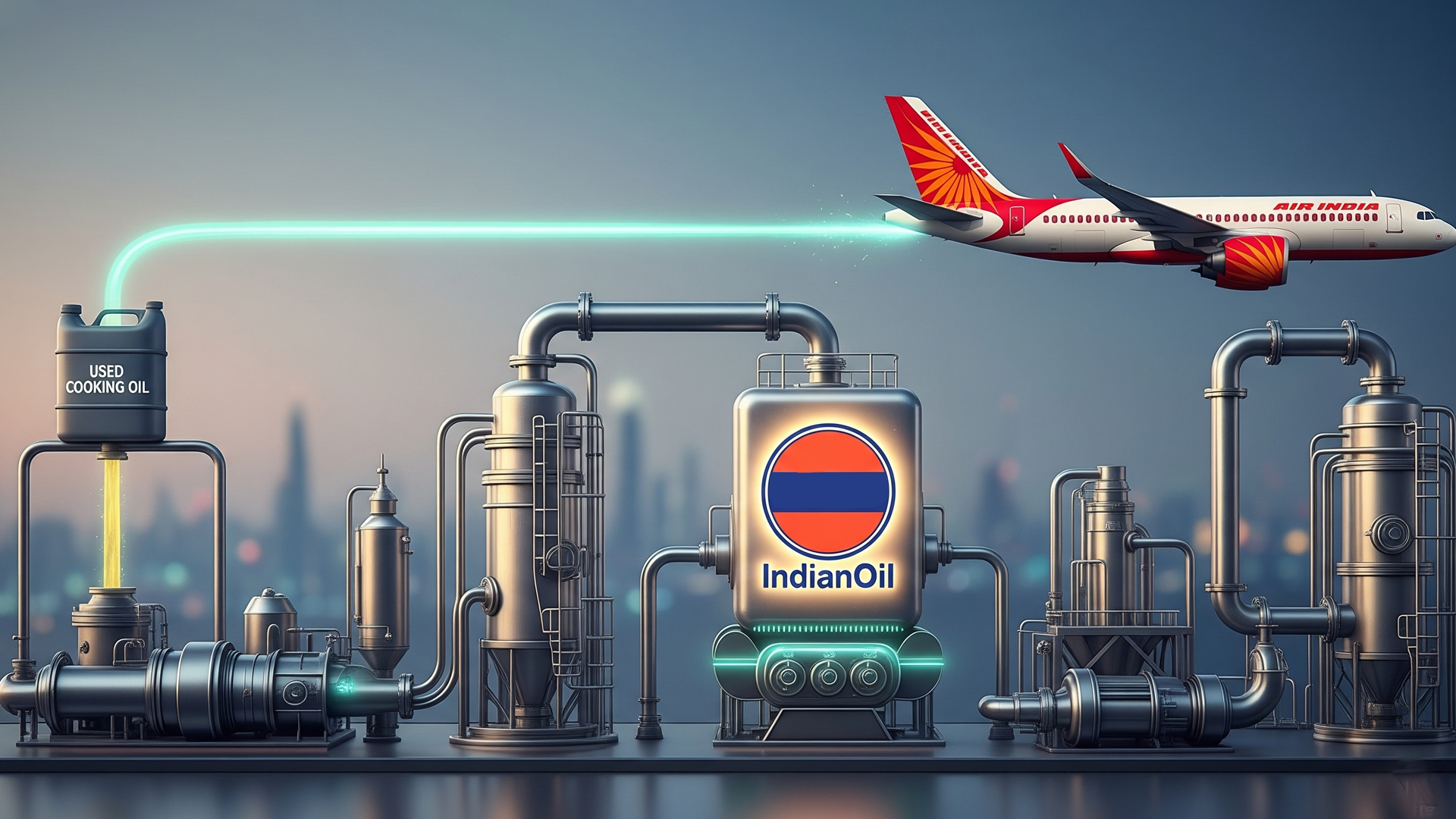
Indian Oil, Air India Ink Pact to Fly on Cooking Oil-Derived Fuel
India takes a bold step toward sustainable skies with landmark SAF agreement
Marking a breakthrough for Indian aviation, Indian Oil Corporation (IOC) has signed a memorandum of understanding with Air India to supply sustainable aviation fuel (SAF), positioning India at the forefront of the global push for cleaner air travel.
Starting this coming December, IOC will produce SAF at its Panipat refinery using used cooking oil collected from hotels and restaurant chains such as ITC and Haldiram’s. The refinery will generate about 35,000 tonnes annually, transforming everyday kitchen waste into green jet fuel.
Sustainable aviation fuel, made from non-petroleum feedstocks, can reduce carbon emissions by up to 80% over its lifecycle and can be blended up to 50% with traditional aviation turbine fuel. India has already mandated 1% blending in jet fuel for international flights from 2027, giving this initiative strong policy backing.
IOC is the first Indian company to obtain ISCC CORSIA certification, a global endorsement under the UN aviation body ICAO’s carbon reduction framework. This certifies IOC’s capacity to deliver fuel that meets the highest international standards of sustainability and emissions reduction. “This MoU with Air India is a strategic step in India’s transition to sustainable aviation,” said IOC Chairman Arvinder Singh Sahney. “Our certified green fuel will not only decarbonise air travel but also set a benchmark for the industry.”
For Air India, the agreement is aligned with its net-zero 2050 goal set by the International Air Transport Association (IATA). CEO Campbell Wilson called the pact a crucial step toward greener skies. “We are committed to supporting India’s sustainability agenda and ensuring our growth aligns with the planet’s needs,” he said.
The MoU was signed by IOC’s Executive Director (Aviation), Shailesh Dhar, and Air India’s Group Head of Governance, Regulatory and Corporate Affairs, P. Balaji, in the presence of Sahney and Wilson.
With this partnership, India is not only preparing to meet global climate commitments but also turning everyday waste into fuel for the future. For passengers, it means flying cleaner without changing the experience, but with the assurance that each journey contributes a little less to the planet’s carbon load.
